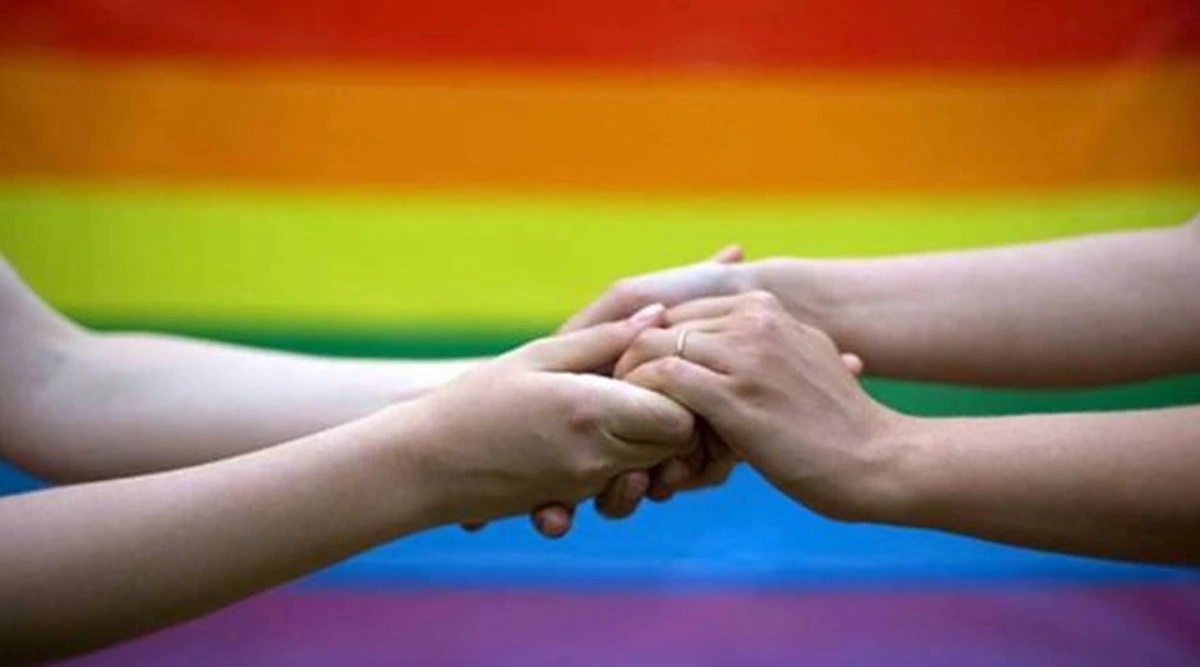Aman, a trans man, was forcefully married to a man at the age 14, but he managed to get out of that marriage. He fell in love with a woman but her family was vehemently against their relationship. They decided to run away together. Her family filed a trafficking case against him and got her committed to a mental institution.
“The family members came and picked my partner up and took her away without consent. It was a very violent incident. Since I am masculine appearing and cis passing they beat me up very badly because they assumed I was a [cis]man,” said Aman.

Aman’s partner resisted and tried everything possible, including jumping in a drain, but they beat her up, dragged her and took her away. Since then, Aman knows that she has been put into a “rehabilitation” centre but he has not been able to get in touch with her. He has also been allegedly facing “casteist abuse, violence and threats of rape from his partner’s family”.
Express Opinion | All that is needed is a small change in the Special Marriage Act
This is just one of the many testimonies of queer and trans persons that was recorded at a public hearing last week. At a press conference organised by People’s Union for Civil Liberties (PUCL), along with the National Network of LBI (Lesbian, Bisexual, Intersex) Women and Trans Persons (The Network) April 3, activists presented their findings in context of Marriage Equality Petitions in the Supreme Court. These petitions seek the legalisation of same sex marriages in India.
Divya Taneja of Special Cell For Women and Children said:,”The testimonies from the hearing reiterate the urgency for the State to protect the right of queer and trans persons.”
Rehman, a trans man grew up in a large family in a village in North India and always knew that he was a boy. He would wear shorts and shirts and would get beaten up for this. He was married to a man at the age 14 and resisted physical assault by the husband.
“Eventually I was taken to a police station. I don’t trust the police. I was called for counselling. I don’t know what they wrote in the complaint, but I was sent to a mental hospital. My head wasn’t working. I was there for a week, at the hospital. They gave me electric shocks. My head is still affected.”
Most Read 1Ratna Pathak Shah on Naseeruddin Shah’s first marriage: ‘He had many relationships… but as long as I am the last, I am okay’ 2Study Abroad: Check recent changes in Canada’s student visa policy 3Cannot keep former deputy CM Manish Sisodia in jail in excise policy cases indefinitely: SC to CBI 4When Rajinikanth praised Amitabh Bachchan, Shah Rukh Khan asked, ‘What does one do to become Shahenshah?’ 5Shah Rukh Khan forgets Salman Khan while thanking KKHH cast as film turns 25, tells crowd: ‘Woh interval ke baad aayega’. WatchSpeaking for myself | Same-sex marriage: The right to marry is essential for the full experience of citizenship
He now lives with his partner and her children who see him as their father. Rehman feels if his union with his partner is recognised, his life will be much more simple. ” Paromita Chakravarti, a feminist academic from Kolkata, said that often queer and trans people don’t have the ability to make decisions about their own life and relationships. “For queer and trans people, their caste, religion, class and ability additionally impact their right to choice, and their ability to make decisions about their own lives and relationships,” she said.
Veena Gowda, lawyer from Mumbai feels that a redefinition of families and marriage is essential.
Also ReadWhen ex-ISRO chief was told to ‘get lost’ by ISRO satellite centreNithari killings case: Allahabad High Court acquits Surinder Koli, Monind…SC verdict on petitions seeking legal sanctity to same-sex marriage todaySupreme Court rejects plea to end 26-week pregnancy
“All child-related/ laws are family-centric. So, even if foster care is available, only heteronormative families are considered for fostering, which might not be sensitive to the needs of LGBTIAQ+ children. A redefinition of families and marriage, therefore, is necessary for the safe rehabilitation of queer and transgender children,” she said.



